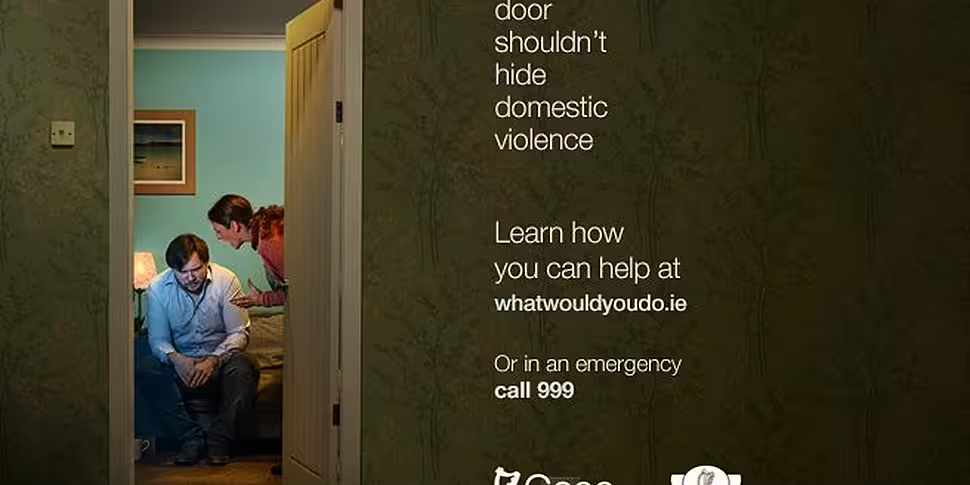In Ireland, like in most ‘civilised’ countries in world, we don’t tend to think about domestic abuse much. It’s something that happens to other people.
So you may find the following sentence quite shocking.
“Over 300,000 people in Ireland, both men and women, have been severely abused by a partner.”
Think about it.
'Almost one tenth of the population in Ireland has, at some stage, suffered domestic abuse.'
It’s isn’t always behind closed doors. It isn’t always physical. But for some people, it’s always there. Waiting. Waiting for a ‘wrong’ word or answer. Waiting for a ‘wrong’ look or gesture. Just waiting…for an excuse.

What would you do?
But what would you do if you came across someone you suspected was suffering from some form of abuse?
Would you ignore it, pretend you didn’t hear it?
Would you turn a blind eye and pretend you didn’t see it?
Or would you intervene and try and break the cycle?
If we witness domestic violence but choose to ignore it; we leave another victim behind.
We’re not just bystanders.We’re witnesses.
Only intervene if it is safe and legal to do so.
While anyone can be a bystander, an active bystander is someone who recognises a problem and decides to intervene in a way that feels safe and appropriate for him or her.

It may mean intervening in violence that is already occurring, whether it’s physical, verbal, emotional, or sexual abuse.
Support
If you suspect someone you know is being abused, don’t wait for them to approach you. Look for a private moment - let them know you’re there to give support.
Here are some ideas for what this conversation might look like:
1) Express concern.
Tell your friend that you’re concerned for them. This is a non-judgmentalapproach that might make them feel comfortable in opening up. If they deny anything is wrong, don’t force the issue, but reassure them that you’ll be there, if they ever want to talk.
2) Assure them that the violence is not their fault.
This can be an important thing for a victim of violence to hear.
Some useful things to say might be…
“No one deserves to be treated this way,”
“You’re not to blame,” or simply,
“What’s happening is not your fault.”
3) Support, but don’t give advice.
This can be hard to do, especially if the victim is someone close to you. But remember you can’t make someone leave a relationship if they’re not ready to do so. Also be aware thatleaving an abusive relationship is the most dangerous time for a victim. Give them options and offer to help and support them along the way.
4) Keep it confidential
Assure the victim that anything that’s been said, will stay between the two of you. Breaking avictim’s trust after they have opened up may only isolate them further, and could even put them in danger.
Safety
Remember. Before you get involved, ask yourself if it’s safe and legal to intervene. If the situation is already violent or looks like its escalating quickly, don’t directly intervene. Call the Gardaí on 999.
The only effective bystander intervention is a non-violent one. If you see or suspect domesticabuse in Dublin visit www.whatwouldyoudo.ie or call 999.
98FM supporting Cosc


A message from Cosc and the Dormant Account Fund supported by 98FM













